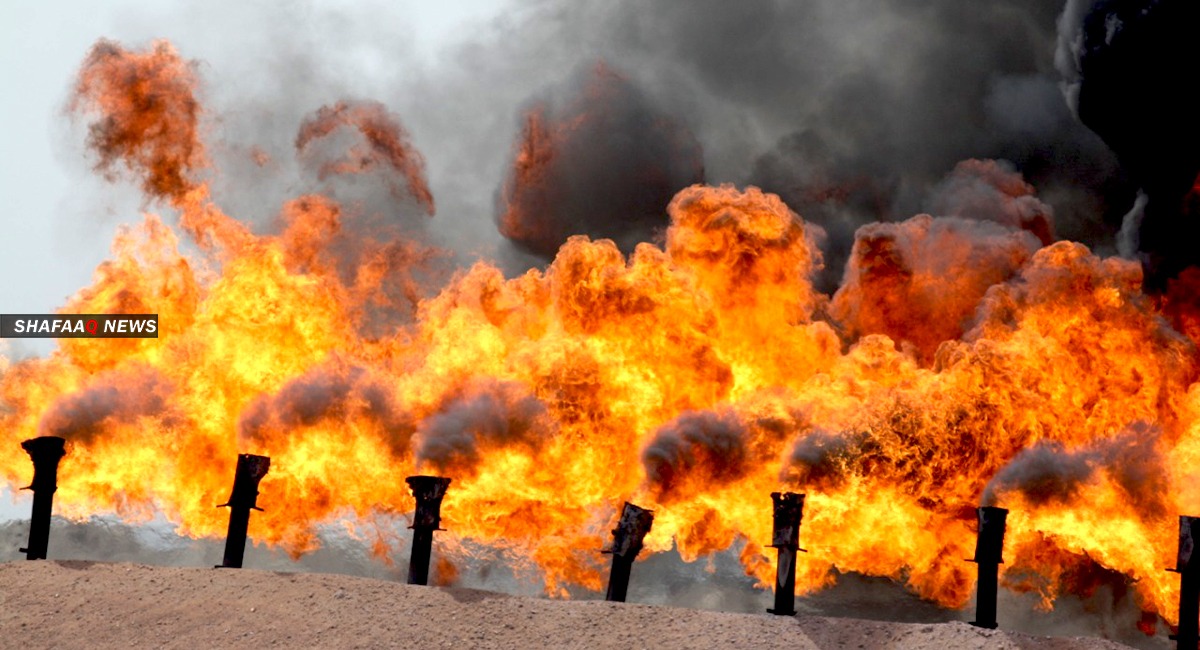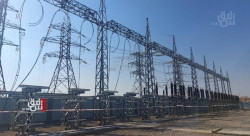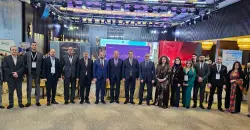Flaring Gas and the Deep State: Iraq imports what it burns

Shafaq News / If it is your first visit to the oil-rich Basra, you will be taken aback by the city's welcoming scenes. But, once in, you will see flames rising from all directions from the flared gas that accompanies crude oil production instead of investing it.
According to preliminary estimates by the Oil Ministry, Iraq has an estimated reserve of 132 trillion cubic feet of gas, with about 70% of Iraqi gas is associated with crude oil extraction for processing. Iraq ranks 11th among the world's natural gas-rich countries.
A World Bank report indicated that four countries are still flaring gas, including Russia, Iraq, U.S., and Iran. Further, the report indicated that this represents 45% of all the gas flaring globally for three consecutive years (2017-2019).
According to the World Bank, gas associated with oil extraction is being burned because of technical, regulatory, economic, or for all the mentioned reasons, "This results in the release of more than 400 million tons of CO2 emission equivalent each year, the waste of a valuable resource, and environmental damage due to unburned Methane and Black Carbon emissions".
While Iraq imports large amounts of natural gas from Iran, it burns ten times the amount it imports, according to the Washington Institute for Near East Policy, with a waste of up to 2.5 billion dollars a year.
Massive Projects
Oil Minister Ihsan Abdul Jabbar revealed to Shafaq News agency, "Basra Gas Company leads a giant project to build new facilities. It is in the process of implementing its initial phase of producing 400 million standard cubic meters, reaching a record 1,000 million cubic feet later".
"There are other projects in Maysan for a gas plant with a production capacity of 300 million cubic meters, and another in Dhi Qar for a gas plant to produce 200 million standard cubic meters", Abdul Jabbar said.
Iraq produces most of the gas after contracting with giant companies to produce it, while natural gas fields are still far from investing.
In this regard, the minister clarified, "A year ago, the ministry held a new tender for investment in the Mansouria gas field, but major companies such as Total, ExxonMobil, and Chevron did not want to compete for the development of the field because of security problems. So currently, level 2 companies are competing in the field."
Scarcity of funding
"The construction of natural gas processing plants - consisting of desalination plants, water removal, and gas pistons - requires large funds, and the budget is unable to allocate them. This leads Iraq to use international companies to build such plants," said Mohammed Saleh Al-Jawad, a professor of oil engineering at Baghdad University.
He also added, "The problem of building such plants in Iraq is not technological as much as it is financial. Most of the gas extracted is associated with oil since with every million barrels of oil, half the amount of gas is obtained."
"The process of separating and extracting gas is underway, but Iraq is still burning half of the accompanying gas," Al-Jawad noted.
Neglect of wealth
Ghaleb Mohammed, a member of the Iraqi parliament's oil and energy committee, noted "internal and external reasons for hindering gas investment in Iraq. The most important internal reason is that the successive ministers of oil are not academics and have political ideology rather than economic. Therefore, they are working to increase oil and neglect natural gas production. The external factor is that neighboring countries do not want to make Iraq a gas-producing country and keep it an importing one, as well as other parties that benefit from gas imports."
"Iraq has huge natural gas reserves, if properly invested, it can achieve self-sufficiency and even export the surplus abroad," Ghaleb added.
A deep state
Oil expert Hamza Al-Jawahiri confirmed, "Major projects are underway in Iraq to treat the gas that is wasted and burned. The Ministry of Oil will begin to increase the production of gas associated with oil after the expected increases in oil production in the coming period, as well as the investment of natural gas fields in Mansouria in Diyala and Ukaz in Al-Anbar."
"The many interventions by some powerful militias - or the so-called "deep state" - hinder any development project in Iraq including gas, electricity, refineries, and petrochemicals," Al-Jawahiri added.
He continued, "There are thousands of international companies willing to invest in Iraq, but there are also those who are blocking these companies for many reasons, including internal and external ones."
New agreements
After interest in gas increased globally to reduce CO2 emissions, gas stocks rose, given the economic and environmental characteristics that made it a primary material in important industries. That prompted the Ministry of Oil to increase gas production, especially since Iraq needs dry gas to operate its power plants imported from neighboring countries.
Iraq and French Total Petrochemicals signed a bilateral gas agreement on March 29 to invest 1,000 megawatts of gas.
Oil Minister Ihsan Abdul Jabbar confirmed that the agreement will begin, and "Total" will establish the Artawi gas complex with a capacity of 600 million cubic feet per day and in two phases - 300 million cubic feet per day - from the fields of West Qurna 1, Majnoon, Ben Omar, Artawi, Tuba, Saba, and Lahis.
The agreement, which marks the strong return of Total Petrochemicals after 100 years of suspended investment in Iraq, is an important step in developing Iraq's promising gas sector.
On November 23, 2011, the Ministry of Oil signed a contract with "Royal Dutch Shell" to process oil-related gas in the southern oil fields after the Ministerial Cabinet approved the establishment of the Basra Gas company, which will handle gas from the Rumaila, Zubair, and West Qurna fields, with 51% participation, jointly with the Ministry of Oil-owned Southern Gas Company, Royal Dutch Shell by 44%, and Japan's Mitsubishi by 5%.
Kurdistan's gas
The Kurdistan Gas Project was established in 2007 under an agreement concluded by Dana Gas and Crescent petroleum with Kurdistan's regional government. The agreement grants exclusive rights to evaluate, develop, produce, market, and sell oil and natural gas from the Khor Moor and Chemchemal fields in Kurdistan.
The total investment in the project to date exceeds 2 billion dollars, with cumulative production of more than 332 million barrels of oil.
In October 2008, production at the Khor Moor project began with a record period of only 15 months. In 2009, the Pearl Petroleum Coalition, which includes Dana Gas and Crescent Petroleum, was formed as shareholders later joined by OMV, MOL, and RWE with a 10% share each.





